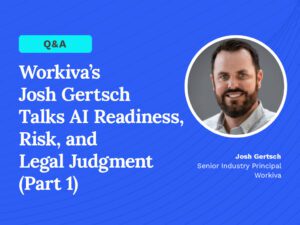Utilizing Behavioral Analytics in Compliance Programs for Mitigating Employee Misconduct
January 13, 2025

Whether intentional or inadvertent, employee misconduct poses substantial risks to corporate integrity, financial stability, and reputation. According to an article by Tom Fox on the Compliance Podcast Network, traditional compliance methods often miss subtle indicators of unethical behavior, such as fraud, conflicts of interest, or harassment. Using natural language processing (NLP), AI-powered behavioral analytics can proactively analyze employee communications and identify potential misconduct early.
The article highlights these key benefits of using AI in Compliance to mitigate employee misconduct:
- Early Detection: AI flags risky language or patterns, e.g., “special arrangement” or “off the books,” which could indicate fraud or policy violations.
- Sentiment Analysis: NLP detects hostile or coercive tones, signaling harassment or toxic workplace issues.
- Proactive Risk Mitigation: AI helps compliance teams preemptively address emerging risks through targeted interventions.
Real-World Applications:
- Fraud Prevention: AI detects communication suggesting fraudulent activity, prompting timely investigations.
- Conflict of Interest Identification: Cross-referencing external data with internal communications reveals potential conflicts.
- Harassment Detection: Sentiment analysis uncovers negative workplace dynamics, enabling corrective action.
- Insider Threats: Monitoring changes in communication patterns helps mitigate insider risks.
Fox notes that balancing privacy and compliance in necessary and effective AI deployment requires transparency, limited data collection, and collaboration with legal and HR to ensure compliance with privacy laws. Ethical AI uses fairness, accountability, proportionality, and employee education to build trust and minimize privacy concerns.
In order to meet regulatory expectations, the US Department of Justice emphasizes the importance of data-driven compliance. AI aligns with these standards, offering real-time risk insights and resource optimization. AI supports but does not replace human expertise, fostering a culture of accountability and integrity when used responsibly.
Critical intelligence for general counsel
Stay on top of the latest news, solutions and best practices by reading Daily Updates from Today's General Counsel.
Daily Updates
Sign up for our free daily newsletter for the latest news and business legal developments.




